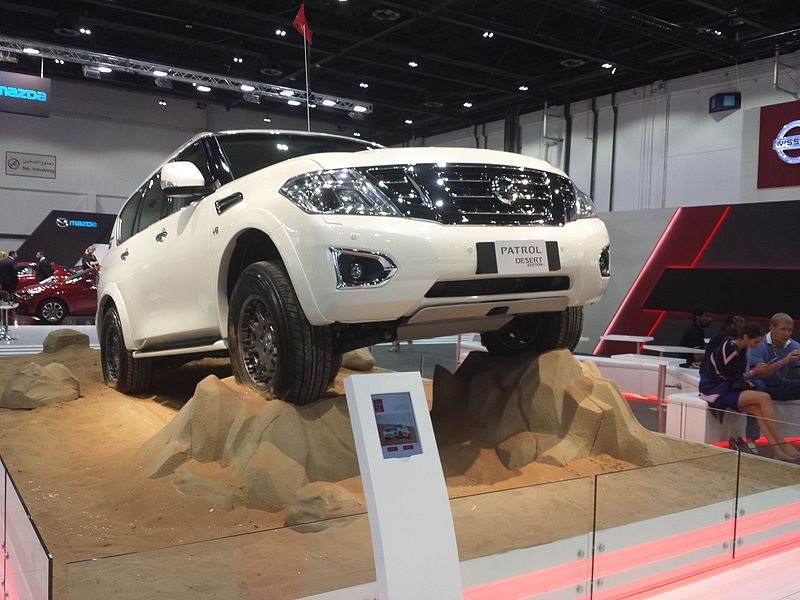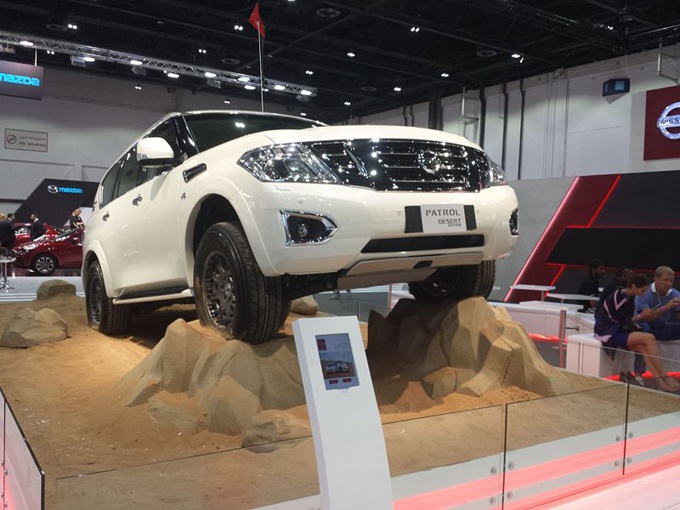Japanese automaker Nissan Motor UK may require the UK to pay compensation for negative consequences of Brexit. This can be a condition for the company's new investment in the UK economy. This was announced by Nissan CEO Carlos Ghosn on Thursday during the Paris Motor Show. According to him, further investment decision will depend on nature of relationship between the UK and the EU. "Uncertainty is what difficult now. What will Brexit conditions be? Nissan does not want to make serious investment decisions in the dark ", - said Mr. Ghosn.
According to research firm IHS Markit, consequences of Brexit could reduce sales of automakers by 2.8 million units by 2018. The Society of Motor Manufacturers & Traders (SMMT) believes that Brexit could lead to introduction of a ten percent commission on export of British-made cars produced in the EU. Last year, factories in the UK produced every third Nissan, and 80% of these vehicles were exported. The company owns the largest in terms of production automobile plant in the country. The facility produces 500 thousand cars a year, and employs about 7 thousand workers.
Other automakers are also afraid of entry fees on trade between the EU and Britain. According to Hanno Kirner, Executive Director of Corporate and Strategy at Jaguar Land Rover, introduction of fees could be "catastrophic" for the industry. As Head of SMMT Mike Hawes put it, "introduction of even a small rate can be harmful because automakers are now working with a weak margin." The situation is complicated by the fact that negotiations on exit from the EU could drag on for years. This, in turn, would increase risks of long-term planning for automakers. "If I have to make investments in the coming months, I cannot wait for Brexit", - said Mr. Ghosn. At the same time, according to some experts, possible introduction of new fees may be partly offset by weakening of the pound sterling. This fact, however, has a negative value as up to 60% of components for car production in the UK are bought abroad.
In August 2016, the global car market showed an increase of 6.3% to 7 million 21 thousand cars and light commercial vehicles. In total, the world sold 60,198,000 cars over 8 months of the year, which is 2.4% more than the last year's result. It is reported by LMC Automotive.
The world’s leader in sales is still China with 274 000 cars sold in August. Growth of the Chinese auto market in the last month of summer was 22.1%. The second place is occupied by America with 1.51 million units sold (market fall of 4.1%).
After a July fall, the Western Europe market once again showed an increase by 8.8% (866.1 thousand cars). On the contrary, the Eastern European market continued to fall by 5.3% in August, down to 302.2 thousand cars.
August car sales in Japan amounted to 333.3 thousand cars, which is 3% higher than a year earlier. In South America sold 248,000 vehicles - 2.6% less than the last year’s result.
source: theguardian.com
According to research firm IHS Markit, consequences of Brexit could reduce sales of automakers by 2.8 million units by 2018. The Society of Motor Manufacturers & Traders (SMMT) believes that Brexit could lead to introduction of a ten percent commission on export of British-made cars produced in the EU. Last year, factories in the UK produced every third Nissan, and 80% of these vehicles were exported. The company owns the largest in terms of production automobile plant in the country. The facility produces 500 thousand cars a year, and employs about 7 thousand workers.
Other automakers are also afraid of entry fees on trade between the EU and Britain. According to Hanno Kirner, Executive Director of Corporate and Strategy at Jaguar Land Rover, introduction of fees could be "catastrophic" for the industry. As Head of SMMT Mike Hawes put it, "introduction of even a small rate can be harmful because automakers are now working with a weak margin." The situation is complicated by the fact that negotiations on exit from the EU could drag on for years. This, in turn, would increase risks of long-term planning for automakers. "If I have to make investments in the coming months, I cannot wait for Brexit", - said Mr. Ghosn. At the same time, according to some experts, possible introduction of new fees may be partly offset by weakening of the pound sterling. This fact, however, has a negative value as up to 60% of components for car production in the UK are bought abroad.
In August 2016, the global car market showed an increase of 6.3% to 7 million 21 thousand cars and light commercial vehicles. In total, the world sold 60,198,000 cars over 8 months of the year, which is 2.4% more than the last year's result. It is reported by LMC Automotive.
The world’s leader in sales is still China with 274 000 cars sold in August. Growth of the Chinese auto market in the last month of summer was 22.1%. The second place is occupied by America with 1.51 million units sold (market fall of 4.1%).
After a July fall, the Western Europe market once again showed an increase by 8.8% (866.1 thousand cars). On the contrary, the Eastern European market continued to fall by 5.3% in August, down to 302.2 thousand cars.
August car sales in Japan amounted to 333.3 thousand cars, which is 3% higher than a year earlier. In South America sold 248,000 vehicles - 2.6% less than the last year’s result.
source: theguardian.com



















